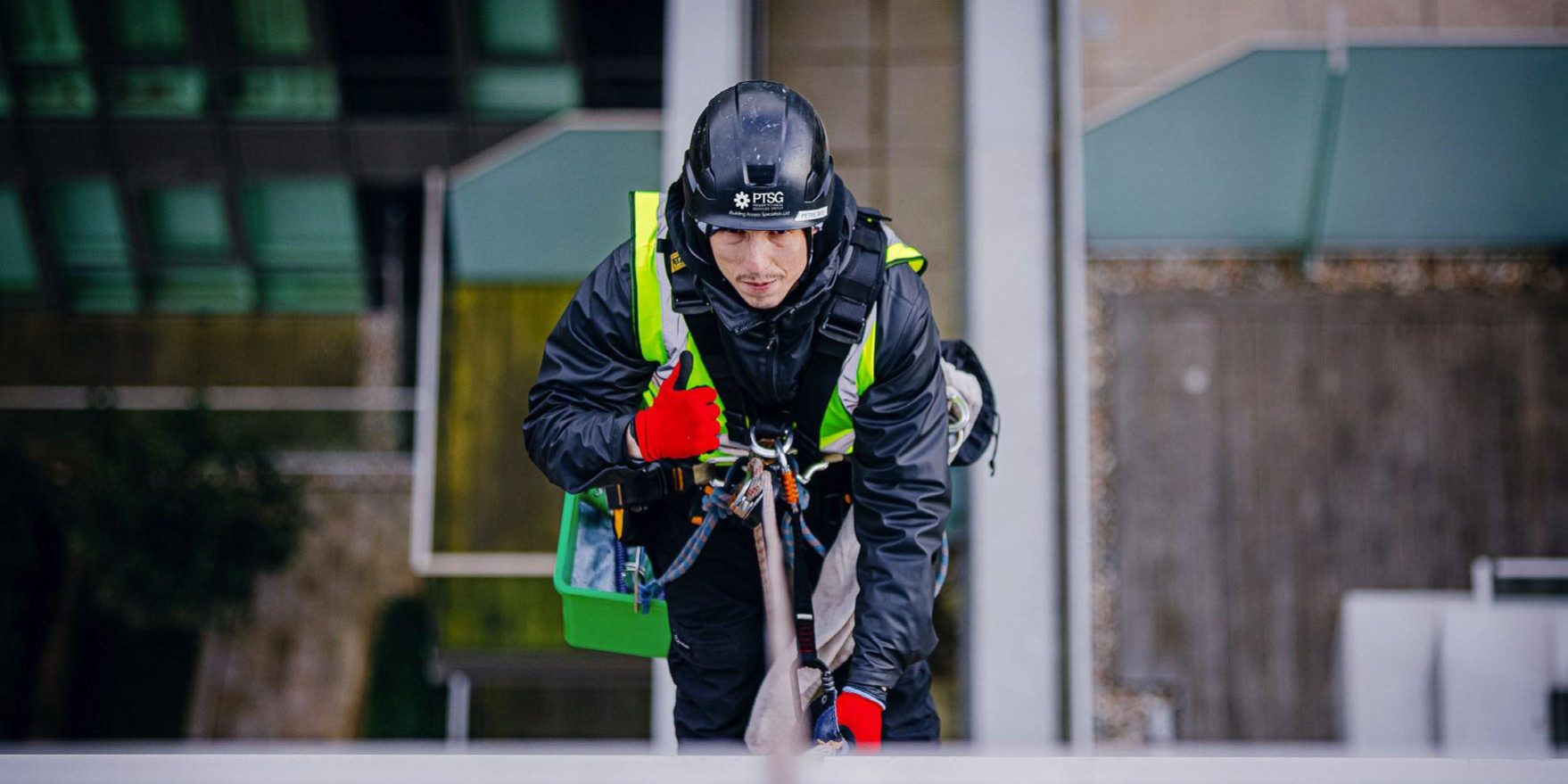There are many ways to access the outside of a building. For PTSG, industrial rope access – or abseiling – remains the most versatile and effective method to carry out specialist services such as high-level cleaning and remedial works at a significant proportion of the 180,000 assets the company cares for.
The Group’s IRATA-trained engineers use industrial rope equipment to service buildings and structures of all kinds, built in different eras for hugely diverse functions. Blackpool Tower, Lincoln’s Waterside shopping centre and just recently 100 Holdenhurst Road – a major office building in Bournemouth – are just some of the structures PTSG has worked on during the past year, calling on its industrial rope access experts to get the best results.
Every large building needs a cleaning and maintenance strategy to ensure it doesn’t fall into disrepair or become an eyesore. For every famous skyscraper in cities nationwide there are innumerable lesser-known buildings across the UK that require the same level of attention to ensure they remain clean and fully functioning. It’s what PTSG does day in, day out for 20,000 customers around the country.
Going above and beyond
Rope access equipment has the great advantage of being lightweight and is therefore easily mobilised on site. This enables PTSG’s engineers to install and remove all equipment quickly, causing minimal disruption and saving valuable time. Another advantage is that it is less obtrusive physically and visually, compared to scaffolding and mobile elevating work platforms (MEWPs), for example.
Due to the unobtrusive nature of industrial rope access, certain buildings, such as shopping centres, can remain operational during works. The visual integrity of historic buildings is also largely unaltered during rope access works.
PTSG’s large team of steeplejack engineers cover the four corners of the UK. They design and install unique access systems to suit clients, each of whom has its own distinctive building(s). This may be a modern skyscraper but it may also be a church steeple or an industrial chimney stack. Working from fail-safe anchors and using high-strength industrial ropes, PTSG’s steeplejack engineers can work on large areas smoothly and effectively, moving both vertically and laterally with ease. Rope access technicians are also trained to work along beams and other supports.
Using a system of slings and attachments PTSG can carry out a wide range of installation, maintenance and construction tasks which would otherwise require the use of costly towers or mobile platforms.
Safety first always
PTSG was one of the first organisations of its kind to employ a full-time Health, Safety and Environment department. The Group’s rigorous approach to safety in all areas of business has been recognised with eight consecutive Health and Safety Golds from the Royal Society for the Prevention of Accidents (RoSPA).
In 2019, PTSG celebrated the honour of an International Safety Award with Distinction from the British Safety Council. This recognises the Group’s commitment to health, safety and wellbeing, working to the principal: “If it can’t be done safely, we don’t do it.”
Terry Wilcock, PTSG Group Director of Health and Safety, said: “Much of what we do in our daily work is considered high-risk, with work taking place at height or in hazardous environments, and therefore an extremely rigorous approach to health and safety is required.
“All of our people are trained to the highest safety standards and follow safe systems of working using the correct equipment for the job. We continually monitor our safe performance targets to seek continuous improvement.”


